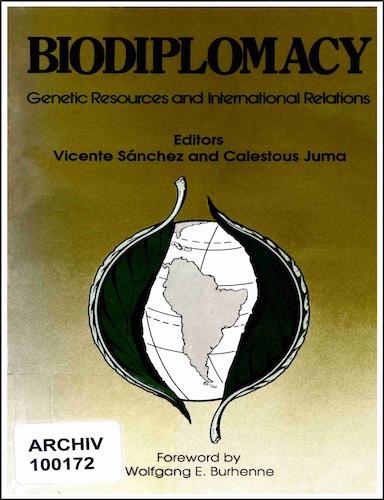Biodiplomacy: Genetic Resources and International Relations
 |
Editors: Vicente Sánchez; Prof. Calestous Juma
This book is about a new field of diplomacy that focuses on negotiations regarding the conservation and sustainable use of the world living resources. It is about biodiplomacy, a field that owes its origins to recent global concerns over the alarming rate at which living organisms are being lost due to human activity. This concern is emerging at a time when advances in science and technology are enhancing the economic potential that lies in the diversity of life on earth. Biodiplomacy deals with how the conservation of biological resources and their sustainable use impinge on international relations and vice versa. The world's biological resources have been considered as the common heritage of humankind and as sovereign property of nations. The debate was resolved through protracted negotiations that resulted in the Convention on Biological Diversity which was adopted in 1992 and came into force in December 1993. The Convention has established a new international regime for governing the utilization and conservation of biological i.e. sources. This convention delicately balances on four main pillars: conservation of genetic resources, technological development, regulated access to genetic resources and international equity.

